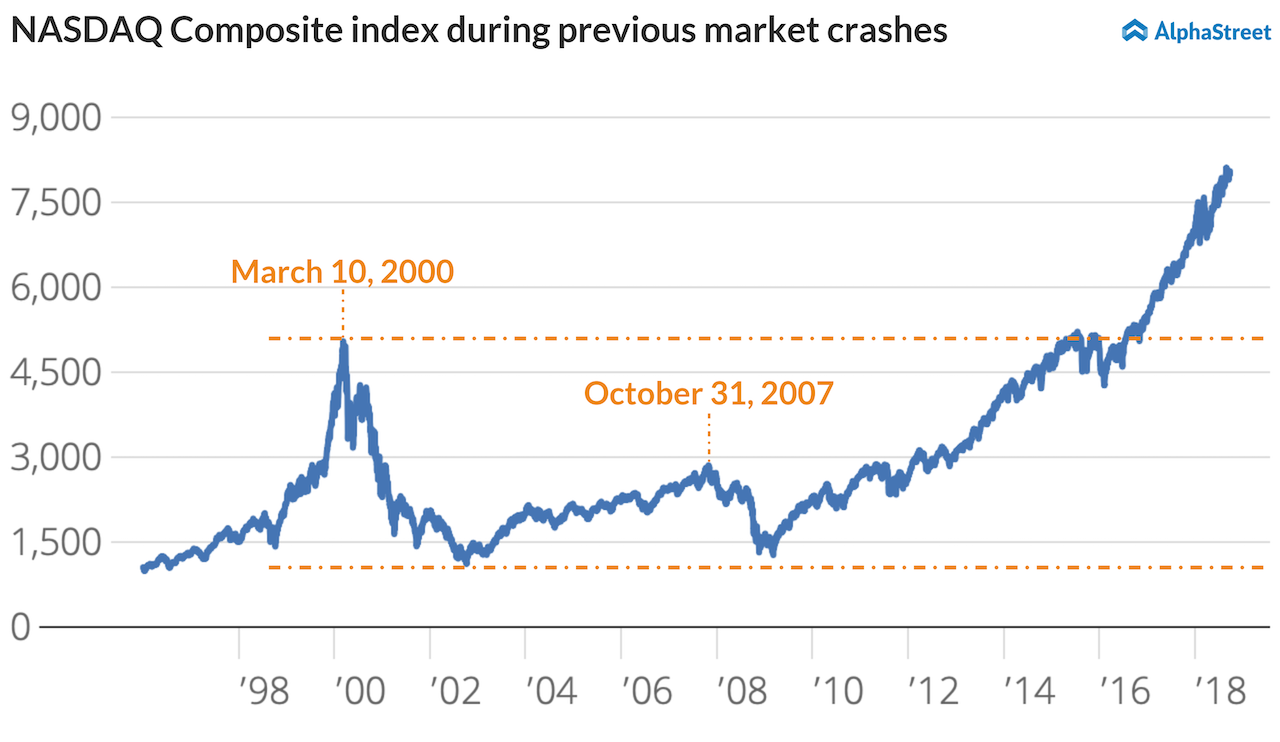We all know that markets don’t like uncertainty. So it is natural that the market goes a little low when CEOs express fears surrounding the trade war situation with China.
However, it may be noted that we are in the longest bull market since the World War 2, with many firms hitting 16-year highs while at it. As we now move to a place where the Fed might hike rates, it needs to be noted that it happens as we enter the 114th month of the bull market.
The Fed is expected to hike the interest rate by a quarter percentage points, bringing it as 100%. With it obviously, it will translate to the consumer industry – where there is a general headwind in the industry.

However, if we are looking at a methodical rise in Fed rates instead of spikes, then it looks okay. After all, the Fed still has to bridge 50 basis points to get to neutral.
In a rising rate market, it is better to invest in financial institutions, esp. banks. If we have a pick, given the healthy cash reserves, JPMorgan would be a great pick.
However, as we go into October, it is best to expect a tough season given the midterm elections. That time, a better bet would be consumer stocks. Given the holidays approaching, people tend to shop more, so Amazon is a good bet.

In a bull market, stocks usually go higher than what investors or analyst expect. While in a normal scenario, it is better to sell while you’re ahead. But with a healthier economy and a roaring market – hold on to amazing stocks. The upside might be more significant. In a rising market, the important thing is to not miss gains rather than strafe from possible losses.
While the market might hit estimates out of the park, the bull market is also the time when analysts matter the most. After the disastrous history of the bear, it had taken quite a good amount of time for the analysts to regain the trust of the Street finally. And they matter.
Investors also need to consider the fact that in a bull market, stuff is unpredictable. Irrational stock movements are to be expected. When there is momentum, it will take stock further in the direction of the move. So if an analyst is saying about a big jump, but it defies logic – chances are that it might come to fruition.
In a typical scenario, the safe bet is the FANG stocks; Facebook (FB), Amazon (AMZN), Netflix (NFLX) and Google, now Alphabet (GOOGL). But in the bull market, even shares of Honeywell (HON) and Caterpillar (CAT) gain MVP status.
Now, there is always a negative press. And the business page usually translates into stock movements in a usual scenario. However, in the bull mode, the bad news is generally brushed off. Yes, it does affect intraday trading, but that’s about it.
But whatever the case, investors need to also keep in mind that stock valuations are at the end of the day a fickle thing. Take pot stocks for instance. In our coverage of it last week, we expressed concerns about a possible overvaluation. While it is normal in a bull market, one needs to keep an eye on certain things. At the end of the day, if it is too good to be true, it probably is.
[DISCLAIMER: This post is an opinionated piece and does not necessarily share the views of AlphaStreet Inc.]
